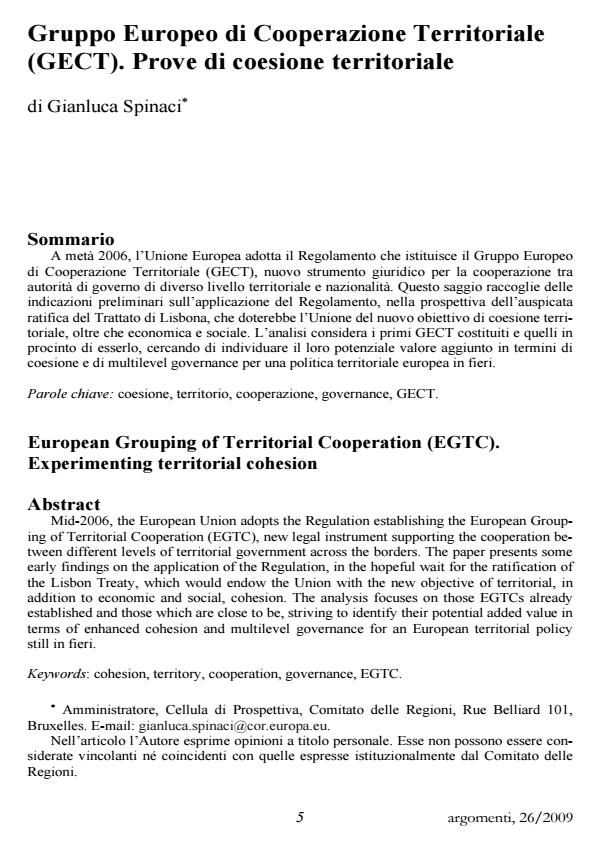Gruppo Europeo di Cooperazione Territoriale (GECT). Prove di coesione territoriale
Titolo Rivista ARGOMENTI
Autori/Curatori Gianluca Spinaci
Anno di pubblicazione 2009 Fascicolo 2009/26 Lingua Italiano
Numero pagine 27 P. 5-31 Dimensione file 298 KB
DOI 10.3280/ARG2009-026001
Il DOI è il codice a barre della proprietà intellettuale: per saperne di più
clicca qui
Qui sotto puoi vedere in anteprima la prima pagina di questo articolo.
Se questo articolo ti interessa, lo puoi acquistare (e scaricare in formato pdf) seguendo le facili indicazioni per acquistare il download credit. Acquista Download Credits per scaricare questo Articolo in formato PDF

FrancoAngeli è membro della Publishers International Linking Association, Inc (PILA)associazione indipendente e non profit per facilitare (attraverso i servizi tecnologici implementati da CrossRef.org) l’accesso degli studiosi ai contenuti digitali nelle pubblicazioni professionali e scientifiche
European Grouping of Territorial Cooperation (EGTC). Experimenting territorial cohesion - Mid-2006, the European Union adopts the Regulation establishing the European Grouping of Territorial Cooperation (EGTC), new legal instrument supporting the cooperation between different levels of territorial government across the borders. The paper presents some early findings on the application of the Regulation, in the hopeful wait for the ratification of the Lisbon Treaty, which would endow the Union with the new objective of territorial, in addition to economic and social, cohesion. The analysis focuses on those EGTCs already established and those which are close to be, striving to identify their potential added value in terms of enhanced cohesion and multilevel governance for an European territorial policy still in fieri.
Parole chiave: coesione, territorio, cooperazione, governance, GECT.
Keywords: cohesion, territory, cooperation, governance, EGTC.;
Gianluca Spinaci, Gruppo Europeo di Cooperazione Territoriale (GECT). Prove di coesione territoriale in "ARGOMENTI" 26/2009, pp 5-31, DOI: 10.3280/ARG2009-026001